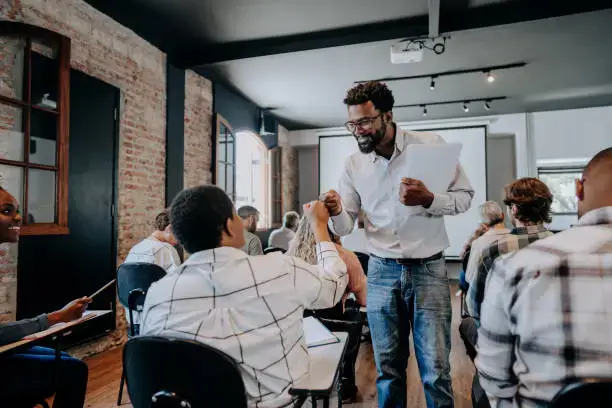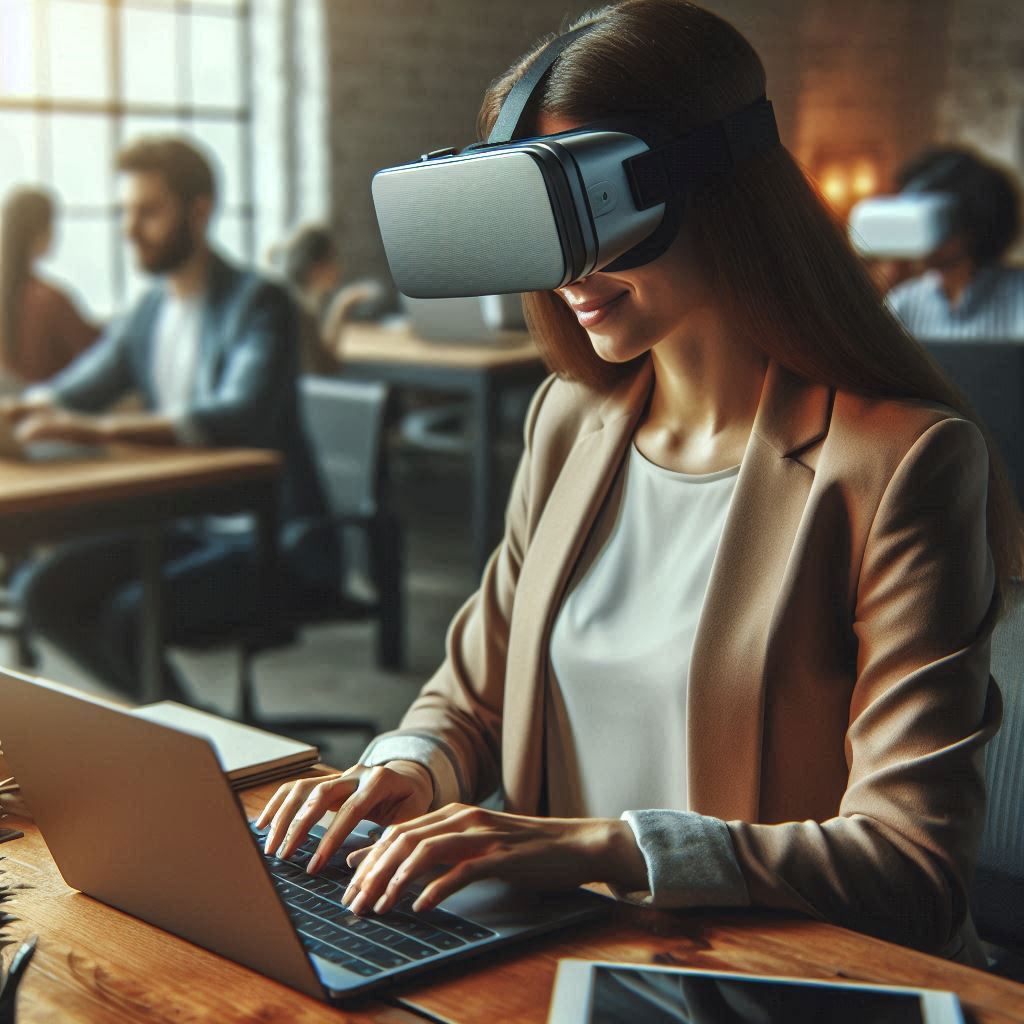Traditional education models have been the norm for centuries.
They typically involve a structured curriculum, a set number of hours in a classroom, and a standardized approach to learning.
However, as we move towards a more individualized and dynamic society, the limitations of traditional education models have become increasingly apparent.
In response, alternative education models and programs have emerged as a way to meet the needs of diverse learners, providing more flexible and personalized approaches to education.
In this article, we will explore various alternative education models and programs that exist beyond the classroom.
We will examine the benefits and challenges of these approaches and highlight successful case studies.
By doing so, we hope to provide a better understanding of the potential of alternative education and why it is important to continue exploring these options for students in today’s world.
Alternative Education Models
Alternative education models refer to nontraditional approaches to education that deviate from the structured and standardized approach of traditional education models.
These models recognize that learners have unique needs, interests, and learning styles and, therefore, require a more personalized approach to education.
Alternative education models can take various forms, ranging from Montessori and Waldorf education to homeschooling, unschooling, and democratic schools.
These models foster creativity, critical thinking, and independent learning, rather than rote memorization and standardized testing.
For instance, Montessori education emphasizes self-directed learning and hands-on experiences, with students encouraged to work at their own pace and pursue their own interests.
On the other hand, Waldorf education emphasizes integrating art, music, and movement into the curriculum to stimulate holistic development.
Homeschooling and unschooling allow for more flexibility in curriculum and schedule, with parents and students taking more control over the learning process.
Democratic schools operate on the principles of student self-governance and shared decision-making, allowing students to have a say in the school’s running.
Innovative Tech Solutions, Tailored for You
Our leading tech firm crafts custom software, web & mobile apps, designed with your unique needs in mind. Elevate your business with cutting-edge solutions no one else can offer.
Start NowAlternative education models challenge the status quo of traditional education, recognizing that a one-size-fits-all approach may not be the best fit for every learner.
By providing more individualized and flexible approaches to education, alternative education models aim to meet the needs of diverse learners better and prepare them for success in the 21st century.
Read: Future of Digital Education: Impact of 5G Technology

Alternative Education Programs
Alternative education programs refer to non-traditional learning experiences outside the traditional classroom setting.
These programs allow learners to engage with education differently, often providing more experiential and hands-on learning experiences than traditional classroom-based programs.
Alternative education programs can take many different forms, such as internships, service learning, apprenticeships, dual enrollment programs, and online learning.
Apprenticeships, for example, allow learners to work alongside professionals in a particular field to gain practical experience and develop specific skills.
Service learning programs involve community service activities linked to classroom learning, enabling learners to apply their knowledge and skills to real-world problems.
Dual enrollment programs allow high school students to take college-level courses for credit, while online learning allows learners to learn at their own pace and on their own schedule.
Alternative education programs aim to provide learners unique learning opportunities beyond traditional classroom settings.
These programs often allow learners to explore their interests and passions more hands-on and experientially while also providing opportunities for mentorship and networking with professionals in various fields.
By providing a more dynamic and flexible approach to education, alternative education programs can help learners develop the skills, knowledge, and experiences they need to succeed in the 21st century.
Read: The Benefits of Experiential Learning: How Real-World Experience Enhances Education
Benefits of Alternative Education Models and Programs
Alternative education models and programs offer numerous benefits to learners that go beyond those provided by traditional education models.
One of the primary advantages of alternative education is personalized learning.
Rather than being constrained by a one-size-fits-all approach, learners in alternative education models and programs can tailor their learning experiences to their unique needs, interests, and learning styles.
This can lead to a more engaging and meaningful learning experience that promotes deeper understanding and retention of information.
Another benefit of alternative education is the potential for enhanced creativity and critical thinking.
Alternative education models and programs encourage learners to explore and experiment with new ideas and perspectives by providing opportunities for hands-on and experiential learning.
This can lead to greater creativity, innovation, and a more developed ability to analyze, evaluate, and solve complex problems.
Alternative education can also promote improved mental health and well-being.
By reducing the stress and pressure associated with traditional education models, alternative education models and programs can help learners feel more relaxed and empowered.
This can lead to greater self-awareness, confidence, and resilience.
Alternative education also benefits from flexibility and autonomy.
Seamless API Connectivity for Next-Level Integration
Unlock limitless possibilities by connecting your systems with a custom API built to perform flawlessly. Stand apart with our solutions that others simply can’t offer.
Get StartedBy allowing learners to control their learning experiences, alternative education models and programs can provide greater flexibility in pace, scheduling, and learning environment.
This can be particularly beneficial for learners with diverse needs and backgrounds.
Finally, alternative education models and programs provide opportunities for increased exposure to diverse perspectives.
Alternative education can foster greater empathy, understanding, and social awareness by encouraging learners to engage with different people, ideas, and cultures.
This can be particularly important in a globalized and interconnected world where diversity and cultural competence are increasingly important.
Read: Educational Apps for Personalized Learning Experiences: Best Picks
Challenges and Criticisms of Alternative Education Models and Programs
While alternative education models and programs offer numerous benefits, they are not without their challenges and criticisms.
One of the primary criticisms of alternative education is the lack of standardization and quality control.
Because alternative education models and programs are often developed and implemented by individuals or small organizations, there is a risk that some programs may not be rigorous or effective.
This can lead to inconsistent education quality and the potential for some learners to fall behind or miss out on important knowledge or skills.
Another challenge of alternative education is the potential for social isolation.
Because alternative education models and programs often prioritize individualized learning experiences, there is a risk that learners may miss out on the social and collaborative aspects of traditional education.
This can lead to feelings of isolation and disconnection, impacting learners’ social and emotional development.
Critics of alternative education also point to the potential for reinforcement of existing inequalities.
Because alternative education models and programs are often developed and implemented by individuals or small organizations, there is a risk that they may not be accessible to all learners.
This can lead to some learners, particularly those from disadvantaged backgrounds, missing out on the benefits of alternative education.
Finally, some critics argue that alternative education models and programs may not adequately prepare learners for the demands of the modern workforce.
While alternative education may foster creativity and critical thinking, there is a risk that learners may miss out on important foundational knowledge and skills necessary for success in many professions.
This can be particularly problematic for learners who may not have access to alternative education programs that are rigorous and comprehensive enough to provide a well-rounded education.
Read: The Impact of Technology on Education and Learning

Case Studies: Successful Alternative Education Models and Programs
Montessori Method
One successful example of an alternative education model is the Montessori method.
Developed by Dr. Maria Montessori in the early 1900s, the Montessori method emphasizes hands-on learning and encourages learners to take control of their own education.
In Montessori classrooms, learners are provided with various materials and encouraged to explore and experiment at their own pace.
The Montessori method has been shown to be effective in promoting creativity, critical thinking, and independence in learners and has been implemented in schools worldwide.
Transform Business with Custom CRM & ERP Solutions
Elevate your operations with a CRM or ERP tailored for you. Let’s build the perfect solution that others can't replicate—crafted to match your business's needs like no other.
Get StartedOne of the key factors contributing to the success of the Montessori method is its focus on individualized learning.
Learners are encouraged to take control of their own education and to work at their own pace, which can lead to greater engagement and motivation.
The Montessori method also emphasizes practical skills, such as self-care and household tasks, which can help learners develop a sense of independence and responsibility.
High Tech High Model
Another successful alternative education model is the “High Tech High” model.
High Tech High is a network of schools that emphasizes project-based learning and real-world applications of knowledge.
In High Tech High classrooms, learners work on projects connected to real-world issues that require collaboration and critical thinking.
The High Tech High model is effective in promoting creativity, innovation, and social awareness in learners and has been implemented in schools across the United States.
One key factor contributing to the success of the High Tech High model is its focus on real-world applications of knowledge.
By connecting classroom learning to real-world issues, learners can see the practical applications of what they are learning, which can lead to greater engagement and motivation.
The High Tech High model also emphasizes collaboration and communication, which can help learners develop important social and emotional skills.
In both the Montessori method and the High Tech High model, individualized learning, practical skill development, real-world applications of knowledge, and collaboration are key factors contributing to their success as alternative education models.
These models demonstrate that alternative education can effectively promote learners’ creativity, critical thinking, and social and emotional development and can offer important alternatives to traditional education models.
Conclusion
The future of alternative education in the classroom looks promising as new technologies and innovative approaches to teaching and learning continue to emerge.
While traditional classroom models may not always meet learners’ diverse needs, alternative education models can offer a more personalized and engaging learning experience.
One area of growth for alternative education in the classroom is the development of online learning platforms and programs.
As more classrooms integrate technology into their teaching, online learning can allow learners to access education from anywhere at any time.
This can create a more flexible and individualized learning experience, allowing learners to work at their own pace and explore topics that interest them.
Another area of growth for alternative education in the classroom is interdisciplinary programs that integrate multiple subjects and skill sets.
By breaking down traditional subject barriers and emphasizing the connections between different fields of study, interdisciplinary programs can create a more holistic and relevant learning experience for learners.
Finally, alternative education models in the classroom can prioritize social and emotional learning.
By creating classroom environments that prioritize collaboration, communication, and emotional regulation, learners can develop important social and emotional skills that are critical to success in both academic and professional settings.
In conclusion, exploring and developing alternative education options in the classroom cannot be overstated.
By embracing innovation and prioritizing learners’ needs, we can create a future of education that is more diverse, equitable, and empowering for all learners, regardless of their individual needs and backgrounds.
Before You Go…
Hey, thank you for reading this blog post to the end. I hope it was helpful. Let me tell you a little bit about Nicholas Idoko Technologies.
Tailored Tech Solutions to Drive Your Business Forward
Maximize your business potential with custom tech strategies. We deliver bespoke solutions that others can’t match, designed to solve your specific challenges with precision and impact.
Contact UsWe help businesses and companies build an online presence by developing web, mobile, desktop, and blockchain applications.
We also help aspiring software developers and programmers learn the skills they need to have a successful career.
Take your first step to becoming a programming expert by joining our Learn To Code academy today!
Be sure to contact us if you need more information or have any questions! We are readily available.











